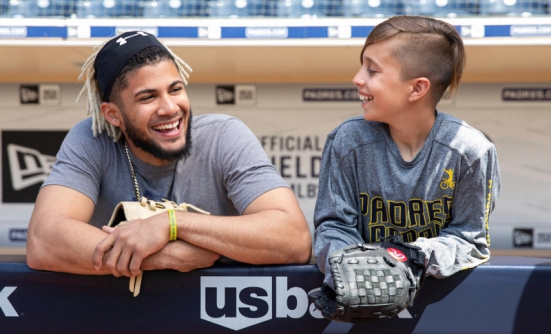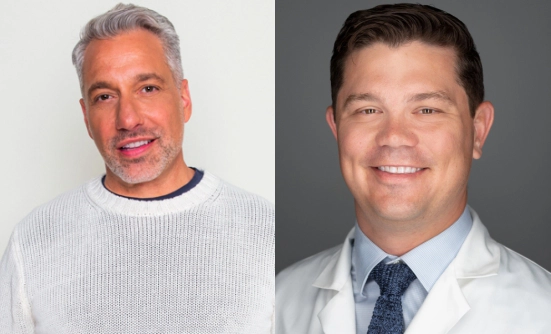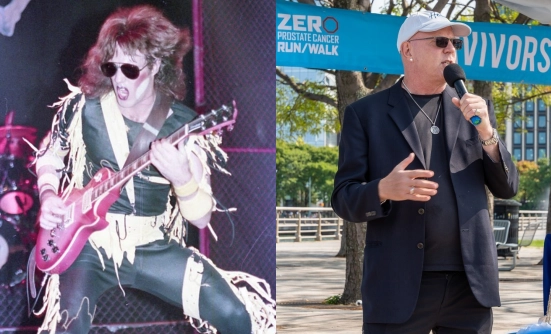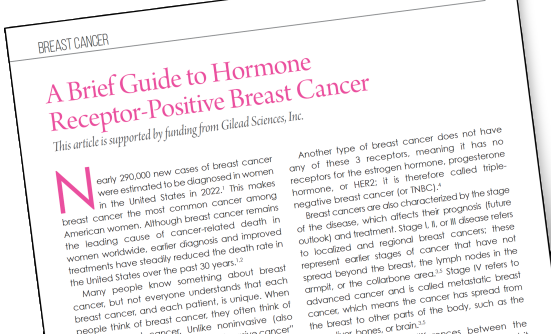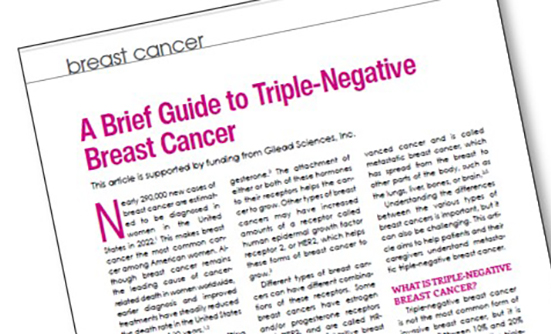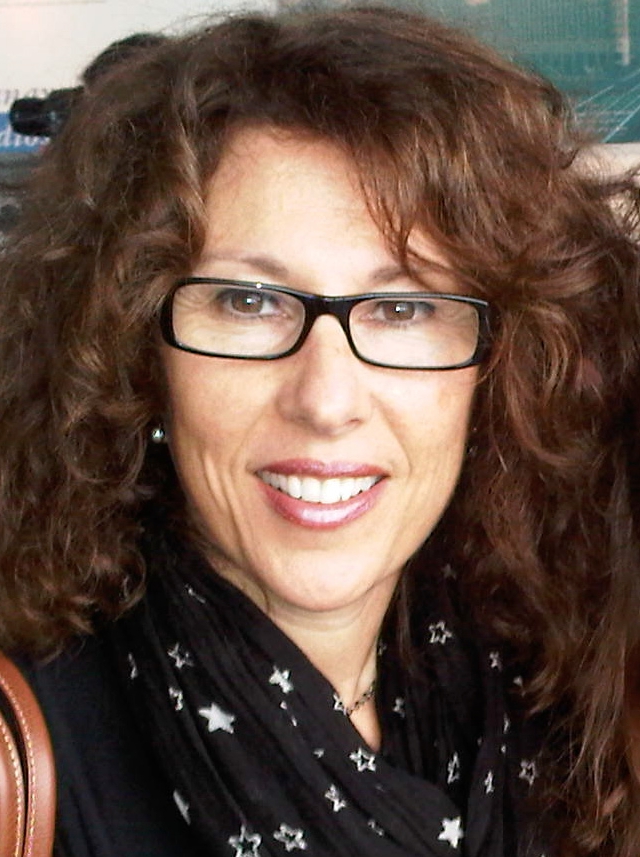
Judy Guitelman is Founder and Executive Director of ALAS-Wings and a 2-time breast cancer survivor.
Judy Guitelman says she is a lucky person. She says this in a matter-of-fact way as we look at each other through computer screens during our Zoom call. She sits at her desk in front of very well-organized and artfully arranged shelves of books and mementos. There is an ease about her; a calm way of speaking about a topic that can unnerve the most confident of people.
Judy described herself as lucky when she recounted her memories of receiving treatment for cancer in 2005 and noticed many other Latina women around her receiving treatment at the same time. So why was she lucky? Judy felt lucky because she is bilingual. (Trilingual, actually. You can add Portuguese to the list along with English and Spanish.) In her words, “I felt fortunate because I understood what the doctors and nurses were telling me while many around me could not.” The simple ability to understand was an important and empowering component of her experience.
Judy began thinking about the women for whom language was an additional challenge in an already challenging situation and wanted to do something about it. She began researching resources for Spanish-speaking survivors and soon realized there was a need for support groups and educational programs for Latina breast cancer survivors. She contacted several advocacy groups in her hometown of Chicago and found one organization that welcomed her passion to help Latina women. Judy began volunteering for this organization and eventually, as luck would have it, that volunteer position turned into a job as Latino Program Coordinator. In this role, Judy established 3 very active Spanish-speaking support groups. So when the organization closed its doors, Judy had no intention of suspending those groups. It was in this moment that the Asociación Latina de Asistencia y Prevención del Cáncer de Mama (ALAS-Wings; or ALAS for short) was born.
ALAS is a nonprofit, Spanish‑speaking organization dedicated to empowering underserved Latina breast cancer survivors. ALAS promotes breast health awareness and provides education and emotional support programs to Latina breast cancer survivors and their families. Judy says ALAS is for Latinas by Latinas, and she insists on 2 components of all ALAS programs: first, they are in Spanish; second, they are always free of charge.
Pre-COVID, every ALAS event was held in person. Judy felt particularly strongly about the importance of in-person events, going so far as to say that she did not initially believe ALAS could survive as an organization on a virtual platform. But with no other option, ALAS reorganized and retrained their staff to engage with their members virtually. Their goal was simple: maintain personal relationships with current members. But they accomplished much more than just maintaining relationships. In perhaps her greatest stroke of luck, Judy found that ALAS programs flourished in a virtual format, and their community grew. The new, virtual platform expanded their reach. Now, instead of hosting in-person events for Latinas in the Chicago area, Latinas from across the country and the world can join live virtual events. In fact, women from Mexico, Venezuela, and Argentina have participated in these events. What kind of events? Support groups, educational programs, an annual breast cancer “Town Hall” meeting, even virtual yoga classes. Impressively, ALAS has engaged with approximately 1,100 Latina breast cancer survivors and caregivers since the beginning of the pandemic.
Because of the pandemic experience and Judy’s belief that human connection is more important than ever before, ALAS has adopted a new motto, “Juntas a la distancia” or “Together, at a distance.”
Judy says she is a lucky person. Maybe she is. I say she is a blessing. Her work has touched the lives of so many breast cancer survivors and their families. I am extremely grateful to her for sharing her personal story and that of ALAS. I hope by sharing her story, all women touched by breast cancer will feel a sense of hope, empowerment, and community. Because, as I’m sure Judy will attest, even though we are distanced for now, our shared experiences bring us together. And together, we are stronger. Below, I share highlights from our talk.
Judy, can you describe the mission and goals of ALAS-Wings?
Yes. Our goal at ALAS is to enable Latina women to receive the very best care and encouragement possible so they can move beyond cancer and begin living fulfilled and happy lives again. We try to enhance the quality of life for the Latino community by providing breast health awareness, education, and emotional support programs for Hispanic/Latina breast cancer survivors and their families.
ALAS offers educational workshops to Latina women that focus on breast cancer. Can you tell us about these educational workshops?
We work in collaboration with different hospitals, universities, cancer centers, and Latino organizations to host educational presentations. Education is a very important part of survivorship. It’s common in the Latino community to allow the doctor to make all the decisions related to your care. But by educating women, they are prepared to have a discussion with their doctor. They can go back and ask questions because now they have a baseline understanding of the disease, the treatments, and the side effects of that treatment. So, instead of just accepting whatever the doctor decides, they can confidently engage in their care and help make those decisions.
When I first started ALAS, all our educational programs were related to breast health, breast cancer, and treatments. We will always offer these topics; in fact, we recently had an endocrinologist from Argentina speak on hormone therapy and breast cancer. But we’ve also expanded our educational offerings to include more than just the basics of breast cancer. We host presentations on mental health and cancer, COVID‑19 and the importance of being vaccinated, how to talk to your kids about a cancer diagnosis, intimacy and cancer, nutrition and cancer, preventive care and screenings, and much, much more.
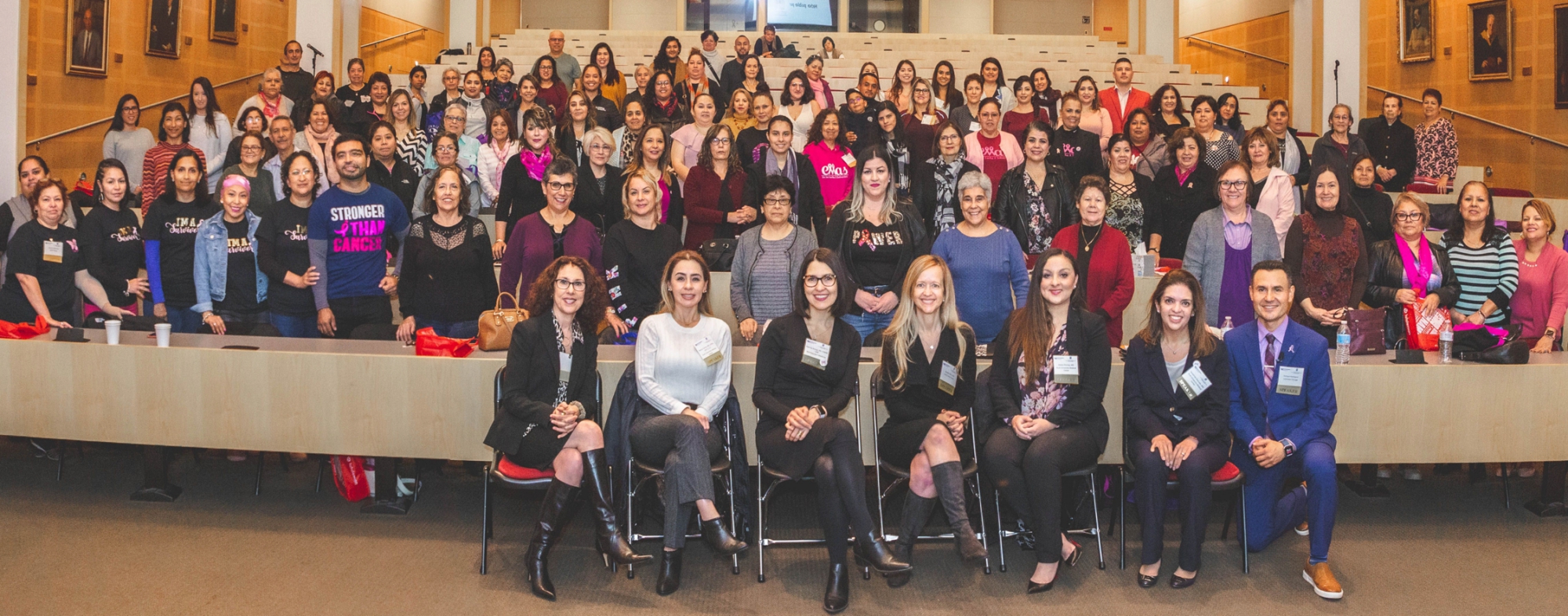
The ALAS community has grown in numbers, and your programming has grown with it. I understand that in addition to breast health topics, you also offer other enrichment programs.
Of course, we discuss breast cancer, but we’ve found that our members are interested in participating in other types of events as well. For example, we’ve hosted an art class in collaboration with a cancer center. We did a presentation on Latin American culture. We had a virtual “Night at the Theater” with an actress from Buenos Aires. We had a music night with a singer from Puerto Rico. At the end of last year, we even hosted a craft class on making holiday cards.
Can you speak to the benefit of attending support groups?
The greatest benefit is the empowerment the women receive. A close second is the friendships that are made. This is not just a support group for “breast cancer survivors,” but in truth, it’s a support group for a circle of friends with a shared experience. It’s very nice to see that.
There’s also the component of hope. There are many of us who have gone through breast cancer and are on the other side now. Having that connection with someone who has gone before you gives you hope for the future; hope to move beyond breast cancer and live life again.
What advice do you have for young Latina women regarding breast health?
To be proactive in your own healthcare and get a mammogram by age 40.
What advice would you give to a woman who has received a breast cancer diagnosis?
I would say the same thing, to be proactive in your own healthcare. If you have questions, ask. If you have doubts about your treatment course, go for a second opinion. If you need a third opinion, go for the third opinion. Do not just go along with whatever your doctor tells you if you are not 100% confident in that choice.
Judy, you have a wonderful story of survival as a 2-time breast cancer survivor. Would you share a little about how you’ve managed the emotional highs and lows of that experience?
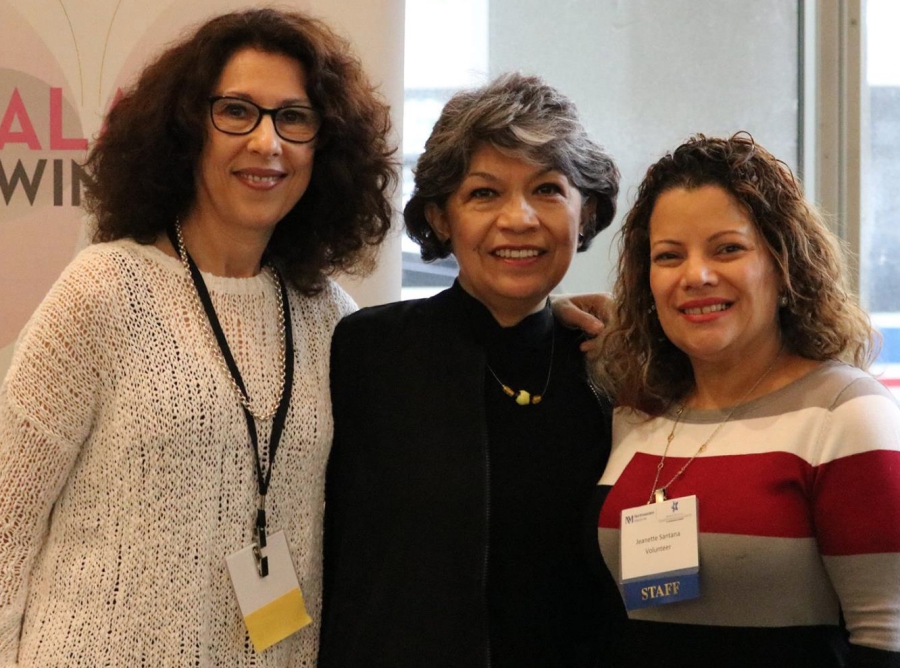
Well, I don’t think you can “manage” the emotions. You just have to go through them. When you get a cancer diagnosis, you feel low. You’re low, and there’s nothing anyone can do to make you feel better. But time will pass, and eventually you will feel better. That’s why I never push anybody to come to a support group if they are not ready.
So, what we do at ALAS is wait behind the scenes. We know that patients will call once they are ready to receive help. Help could be talking to other women, or it could be learning more about next steps of treatment. I don’t think you can manage the emotions, but what I can say is that it gets better over time and that help is available to you when you need it.
This year is the 10th anniversary of the founding of ALAS-Wings. In that time, ALAS-Wings has helped so many Latina women in the Chicago area. Can you share a success story?
There are so many! We’ve connected many underserved Latina women who have financial or insurance concerns with charities that have been able to help them. Our organization has engaged with over a thousand Latina breast cancer survivors and their caregivers since the beginning of the pandemic; that’s certainly a success. But perhaps something I’m most proud of is our Mobile Salon.
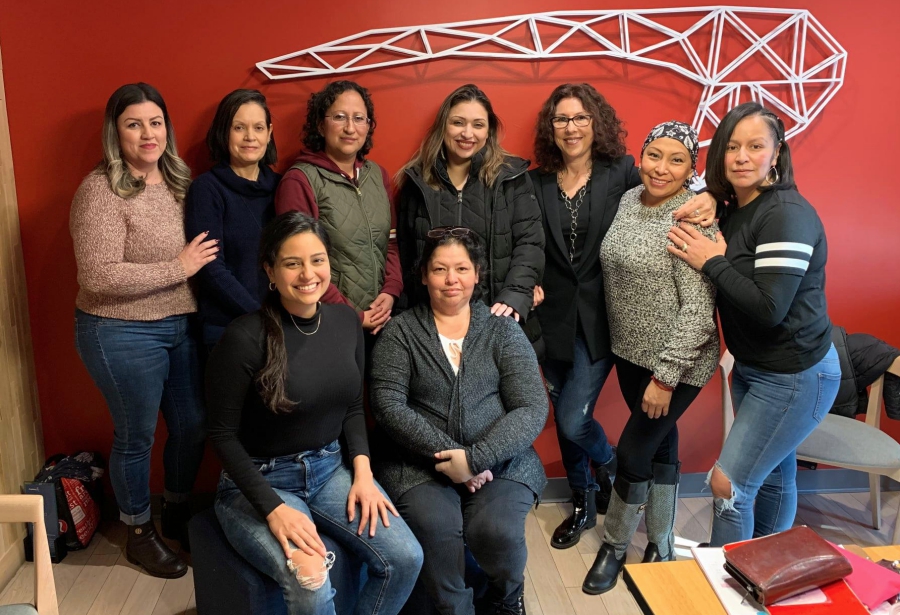
The Mobile Salon is a program to help survivors regain their sense of well-being, body image, and self-esteem. We provide prosthetic bras, wigs, and prostheses at no cost to breast cancer patients with limited financial resources. We have relationships with community centers and medical centers that can recommend breast cancer survivors who need wigs or prostheses. We also have relationships with boutiques in Chicago that are specific to cancer survivors. Some women may go to a department store to buy a new bra, but stores are not really trained to do this kind of work. Survivors have specific needs, so we bring a certified fitter to measure and ensure a good fit. And it’s a mobile program, meaning, we meet survivors out in the community.
This is the only program we’ve had to pause due to the pandemic. But we are looking forward to the day when we can bring the Mobile Salon back.
What are the future goals for the organization?
To continue doing what we’re doing. Continue growing. Continue educating. Continue our support groups. Continue our presentations.
With our virtual platform, we can help Latina women from outside of Chicago. We can facilitate a support group with any organization or medical center that needs us to fill that need for Spanish-speaking breast cancer survivors.
Please accept our congratulations on the success of ALAS and our best wishes for your continued growth!
Thank you so much—muchas gracias!
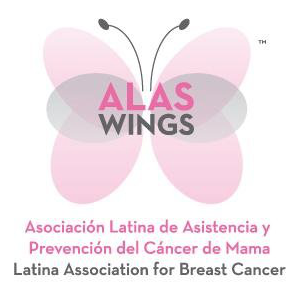
To learn more about ALAS‑Wings, please visit www.alas‑wings.org.






